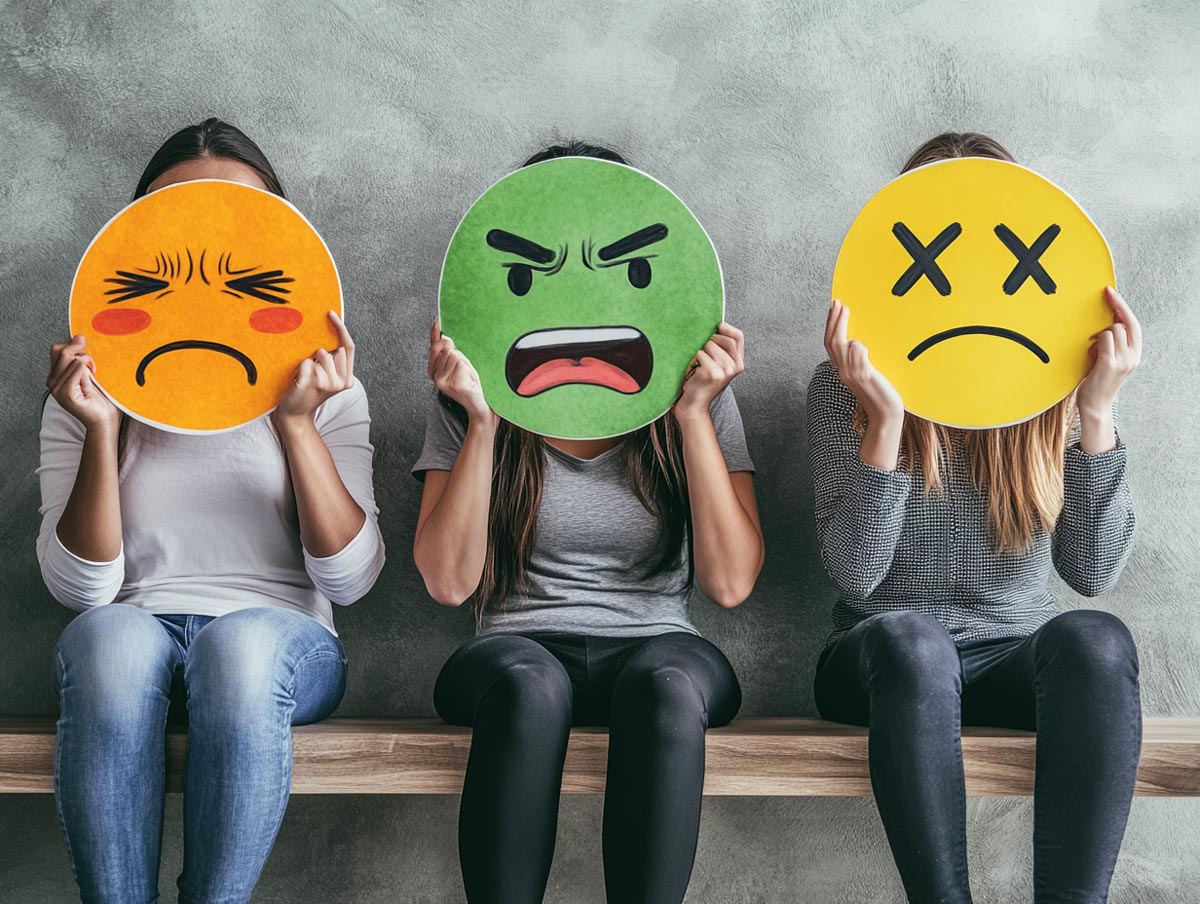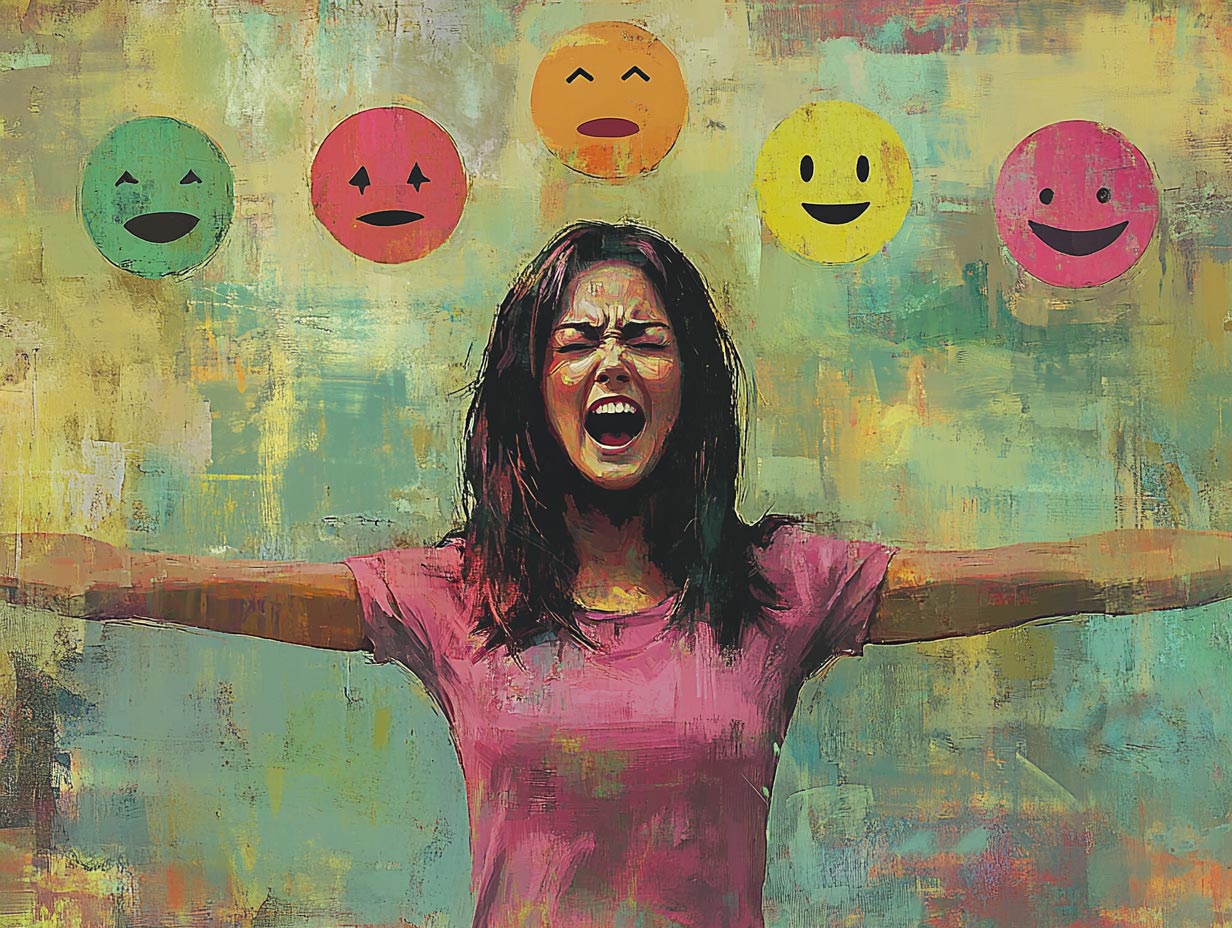Have you ever been called an overreactor or told that you were being too dramatic or too sensitive? Do your emotions sometimes feel as if they are going from 0 to 100, like a rollercoaster?
According to research, intense and/or rapid feeling and responding to emotions may be a result of the way your brain functions. This is particularly true for individuals suffering from attention deficit hyperactivity disorder!
What is ADHD?
ADHD is a neurodevelopmental disorder where inattention and/or hyperactivity/impulsivity are present in daily life. ADHD can have a significant impact on our relationships, work or school performance, and daily functioning, ranging from paying bills on time to doing the dishes.Often overlooked, emotional dysregulation is a core element of ADHD and is becoming increasingly important.
The nature of emotional dysregulation
Emotional dysregulation involves challenges in controlling our behaviours when emotions are intense, which can lead to strong or extreme reactions that don’t quite fit the severity of the situation. When we are emotionally dysregulated, we feel unable to align our emotions with our goals.
Common signs and symptoms
When we are diagnosed with ADHD, the challenge of regulating our emotions can manifest itself in several ways, including:
- More difficulty self-soothing or calming down
- Difficulties refocusing our attention away from an emotion or the situation that triggered it
- A short fuse
- Mood swings
- Feeling easily overwhelmed
- Crying easily
- Losing patience or becoming frustrated easily
- Quick excitability
The above may cause others to see us as overreactors, too sensitive, or too dramatic.

Causes of emotional dysregulation in ADHD
Neurobiological factors
The prefrontal cortex and amygdala play a significant role in processing and responding to emotional triggers in our environment, as well as controlling our impulses. Often, when we have ADHD, our brain will have an underactive prefrontal cortex and an overactive amygdala. Now, what does this mean for emotion regulation?
If the area of our brain that helps us control our impulses, make proper decisions, and regulate our emotions is underactive, this can lead to difficulty regulating our emotions. This underactivity can be caused by a lack of dopamine, a chemical messenger in our brain that is often associated with attention and motivation.
The amygdala, on the other hand, helps us process emotions and emotional memories. If this area is overactive, we may feel strong emotions such as fear or anxiety (think of the movie Inside Out, where one emotion takes control) in situations that do not warrant these strong responses.
Putting it all together, when dopamine is low in the prefrontal cortex, it may be challenging for us to manage emotional responses controlled by the amygdala.
Psychological influences
Often during childhood we learn how to manage our emotions as modeled by our parents. The model we had as children can influence the way we regulate our emotions as adults. It’s possible we didn’t have the chance to learn coping skills or emotional management. Family genetics may also play a role in emotion regulation.
Impulsivity and emotion dysregulation are highly associated. With greater impulsivity, we have greater difficulty regulating our emotions (this is when the 0-100 emotional change may come into play, like a roller coaster). Impulsivity, which is one of the core factors in ADHD, can impact how we manage, regulate, and control our emotions.
Emotional dysregulation’s impact on daily life

Strain on personal and professional relationships
Difficulty regulating our emotions has been connected to negative impacts on our relationships such as:
- More interpersonal and family conflict
- Greater marital dissatisfaction
- Trouble maintaining relationships
- Increased stress when parenting
- Poor quality of friendships
Effects on daily functioning
Emotion dysregulation can also result in issues related to
- Low self-esteem or negative self-image
- Feelings of guilt, shame, and self-blame
- Difficulty expressing emotions
- Anxiety, depression, and sleep disorders
- Job dismissals
- Driving impairment (ex: road rage, DUIs, crash risks)
- Academic stress or workplace stress
It is important to note that emotional dysregulation can also lead to self-destructive behaviors such as substance abuse, self-harm, and suicidal thoughts. If these symptoms appear, it even more important and urgent to seek professional help.

Strategies for improving emotional regulation
So, how do we manage emotion dysregulation and build tools for emotion regulation instead?
- Mindfulness techniques: this can include meditation, deep breathing, and visualization to help feel calmer, take a step back, and increase awareness of emotions. This can allow us to have space to think before we act.
- Developing positive self-talk: being supportive and positive with ourselves can help change our negative thought patterns and improve our self-regulation. For example, telling yourself that you can handle a situation and that it will not ruin your day can change the way we react rather than imagining a situation as a disaster and unmanageable. It can also boost our self-confidence too.
- Developing awareness: reflecting on what situations can trigger our emotional responses (ex: situations, environments, certain individuals) and how our body reacts to these situations (ex: feeling sweaty, tense, heart palpitations) can help us identify when we should begin using tools to self-regulate (ex: breathing techniques, taking a break from what we are doing, physical activity, music).
- Seeking professional help: even with the tools we have, it can be helpful to have external support in implementing our strategies and exploring what may be blocking us from using them at times. Searching for a professional who has a background in working with ADHD clients may be especially beneficial.
Practical Tips for Managing Emotions
More generally, there are strategies for us to better understand and manage our emotions in healthy ways, such as:
Journaling and reflection
Keeping track of our emotions and how we feel through writing can help us learn to identify our emotions, connect with ourselves, and, as a result, make it easier to brainstorm ways to self-regulate or manage a situation next time around.
Exercise
We can take the energy and intensity that may overwhelm us with our emotions and use it for physical activity. Exercise can also help us calm down after an emotional situation occurs and gives us space to rethink how we reacted with a clearer mind.
Preparing a list of healthy coping mechanisms
Creating a list of healthy coping mechanisms can help us prepare in advance for situations where we know our emotions may become overwhelming. This can provide us with a quick reference or reminder of what works for us when we need it most.
Developing a daily routine
Consistency and structure created through a daily routine can help us set goals for our day, feel more in control of our lives, and provide us with a feeling of productivity and success. A routine can also make sure that we leave room to practice self-care in our busy schedules.
ABOUT THE AUTHOR
Dr Jamie Libenstein
Dr Jamie Libenstein is a licensed clinical psychologist, working with children, adolescents, and adults.










